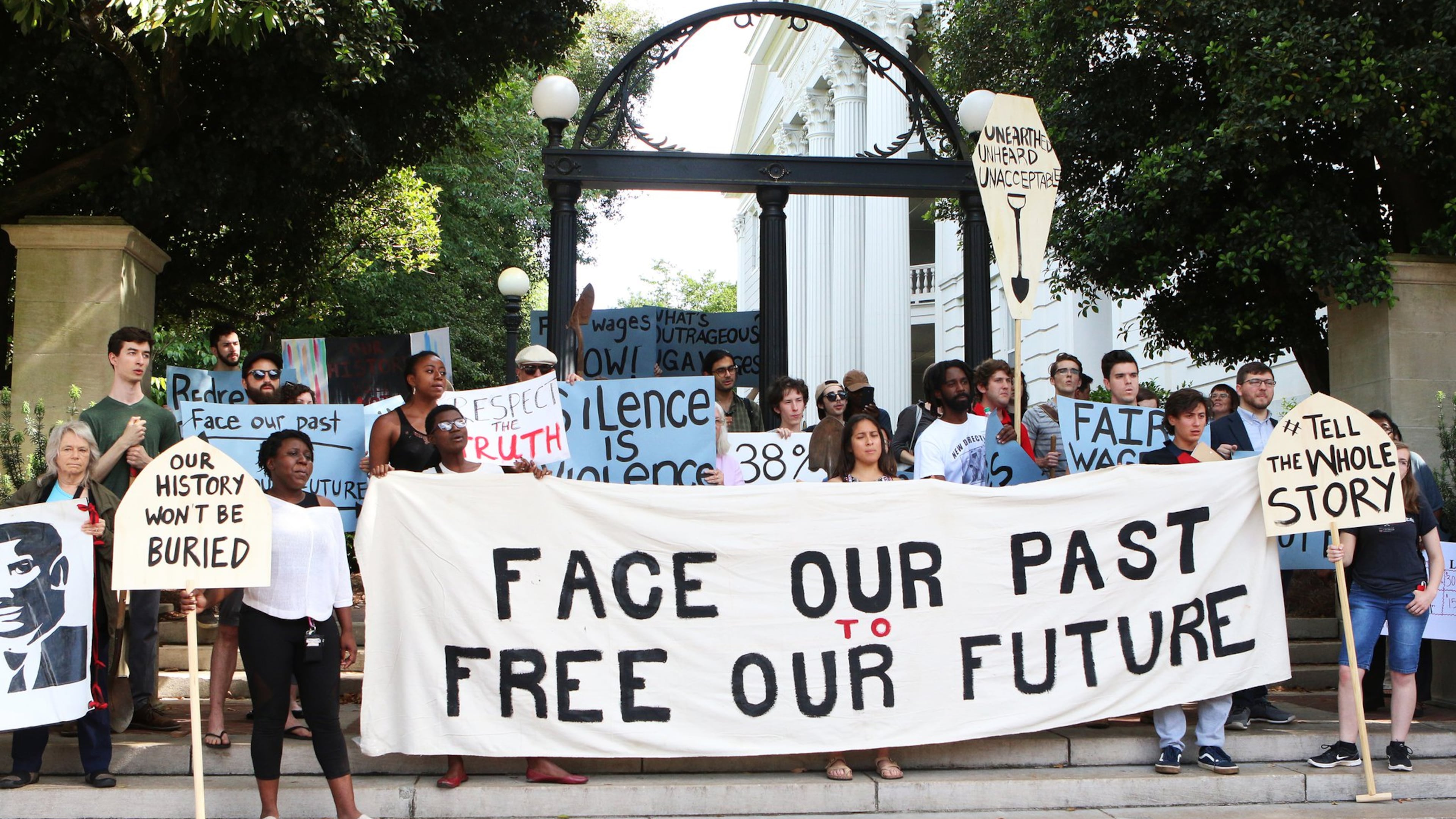UGA looks to explore its history of slavery

University of Georgia leaders say they want to know more about the school’s history concerning slavery and are committing $100,000 for faculty to submit research proposals.
The deadline for proposals is today.
UGA was founded in 1785, and it wants research from that year to 1865, when the Civil War ended.
Some students, faculty, alumni and community leaders say the school needs to commit more money for the work and extend the time period of research past the Civil War.
“It’s not a lot of money for this sort of research, but it’s a beginning,” said UGA associate history professor Chana Kai Lee, who is part of a team working on a proposal to investigate that history.
University President Jere Morehead declined an interview request, but the school released a statement saying, in part, “it is our hope that this research will culminate in one or more definitive, publishable histories on the subject.”
Since the early 2000s, several dozen colleges and universities have done similar research. Led by the University of Virginia, 56 colleges and universities are part of the Universities Studying Slavery commission. UGA is not part of the commission.
Some schools have found they financially profited from slavery and apologized. In 2011, Emory University issued a “statement of regret” after its research “revealed the important role of slaves in helping to build and support the young institution.”
Researchers have created some websites that show the names of slaves who performed tasks at the University of Georgia for slaveholding faculty that included cleaning buildings and starting fires to keep students warm.
History experts say researching slavery can be difficult. Records can be incomplete and often list just the first name of those who were enslaved.
Some experts like Kirt von Daacke, co-chair of the University of Virginia commission on slavery, say colleges benefited from slavery after the Civil War through housing, zoning and educational policies that continued to discriminate against African Americans. That university is looking past the end of the war to investigate that history.
“Slavery shapes in really profound ways what comes afterward,” he said. “The university doesn’t shift on a dime.”
UGA said in its request for proposals that it wants one or more scholarly publications from the research.
COMING SUNDAY
The University of Georgia’s history concerning African Americans is typically focused on the conflict on campus when it integrated in 1961. Some students, alumni, faculty and community leaders have pushed the university to go deeper in reviewing that history after the 2015 discovery of a burial site with the remains of several dozen African Americans on campus. Read Sunday’s AJC for more about the dispute concerning how the university has handled the issue.



